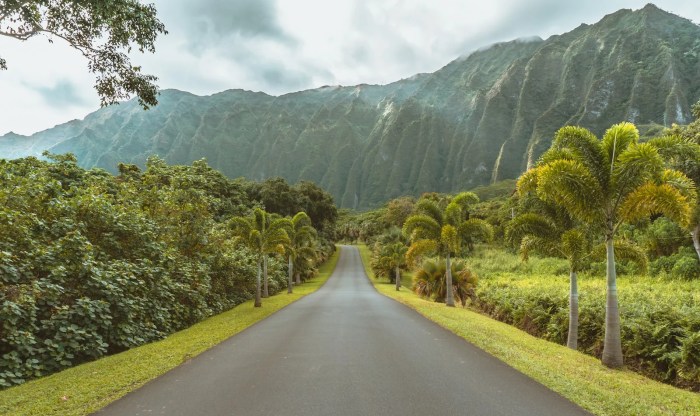The Aloha State offers breathtaking landscapes and a unique lifestyle, but navigating its car insurance market presents its own set of challenges. Unlike mainland US states, Hawaii’s insurance landscape is shaped by factors such as geographic isolation, higher vehicle costs, and unique driving conditions. This guide delves into the intricacies of car insurance in Hawaii, providing you with the knowledge to secure the best coverage at the most competitive price.
Understanding the nuances of Hawaiian car insurance is crucial for both residents and visitors. From deciphering mandatory coverage requirements to comparing providers and securing the most affordable rates, this resource aims to simplify the process, empowering you to make informed decisions about your automotive insurance needs.
Key Insurance Providers in Hawaii

Choosing the right car insurance provider in Hawaii is crucial, given the unique driving conditions and potential for weather-related incidents. Several major companies offer comprehensive coverage, but their services and customer experiences can vary significantly. Understanding these differences is key to making an informed decision.
Major Car Insurance Providers in Hawaii
Several large national insurers have a strong presence in Hawaii, alongside some regional players. These providers compete on price, coverage options, and customer service, offering a range of choices for consumers. Some of the most prominent include Geico, State Farm, and Nationwide. However, many other reputable companies operate within the state, each with its own strengths and weaknesses.
Comparison of Geico, State Farm, and Nationwide
Geico, State Farm, and Nationwide represent a good cross-section of the insurance market, offering different approaches to coverage and customer interaction. Geico is known for its competitive pricing and streamlined online experience, while State Farm emphasizes its extensive agent network and personalized service. Nationwide offers a balance, providing a blend of digital convenience and access to local agents.
Pros and Cons of Geico, State Farm, and Nationwide
It’s important to weigh the advantages and disadvantages of each provider before making a choice. The best provider will depend on individual needs and priorities.
- Geico:
- Pros: Typically offers competitive rates, user-friendly online platform, quick and easy claims process (often online).
- Cons: Limited customer service options outside of online channels, may lack the personalized touch of an agent.
- State Farm:
- Pros: Extensive agent network, personalized service, strong reputation for customer support, wide range of coverage options.
- Cons: May not always offer the lowest rates compared to competitors, longer wait times for claims processing compared to purely online providers.
- Nationwide:
- Pros: Balances online convenience with access to local agents, offers a variety of coverage options, generally positive customer service reviews.
- Cons: Pricing can be slightly higher than some competitors, the range of services offered can vary based on location.
Customer Service Experiences
Customer service experiences can vary widely depending on the specific circumstances and individual interactions. However, general trends can be observed. Geico’s online-centric approach often leads to quicker processing for straightforward inquiries, while State Farm’s agent network generally receives positive feedback for personalized support. Nationwide tends to fall somewhere in between, with online and agent-based options available. Online reviews and independent ratings agencies can provide further insight into customer satisfaction levels for each provider. It’s important to note that individual experiences can differ significantly.
Closing Notes

Securing adequate car insurance in Hawaii requires careful consideration of various factors, from your driving history and vehicle type to the specific coverage options available. By understanding the state’s regulations, comparing different providers, and employing smart strategies for finding affordable rates, you can ensure you’re adequately protected while on the road. Remember to regularly review your policy and adjust it as needed to reflect changes in your circumstances.
Essential FAQs
What is the minimum car insurance coverage required in Hawaii?
Hawaii mandates minimum liability coverage, typically $20,000 for bodily injury to one person, $40,000 for bodily injury to multiple people, and $10,000 for property damage in a single accident. However, it’s advisable to carry higher coverage limits for enhanced protection.
How does my credit score affect my car insurance rates in Hawaii?
In Hawaii, as in many states, your credit score can influence your insurance premiums. A higher credit score generally correlates with lower rates, reflecting insurers’ assessment of risk.
Can I get car insurance if I have a DUI on my record in Hawaii?
Yes, but it will likely be significantly more expensive. Insurers consider DUI convictions high-risk and will adjust premiums accordingly. You may need to seek specialized high-risk insurance providers.
What is Uninsured/Underinsured Motorist coverage, and why is it important in Hawaii?
This coverage protects you if you’re involved in an accident with an uninsured or underinsured driver. Given the potential for higher costs of living and medical care in Hawaii, this coverage is particularly crucial.